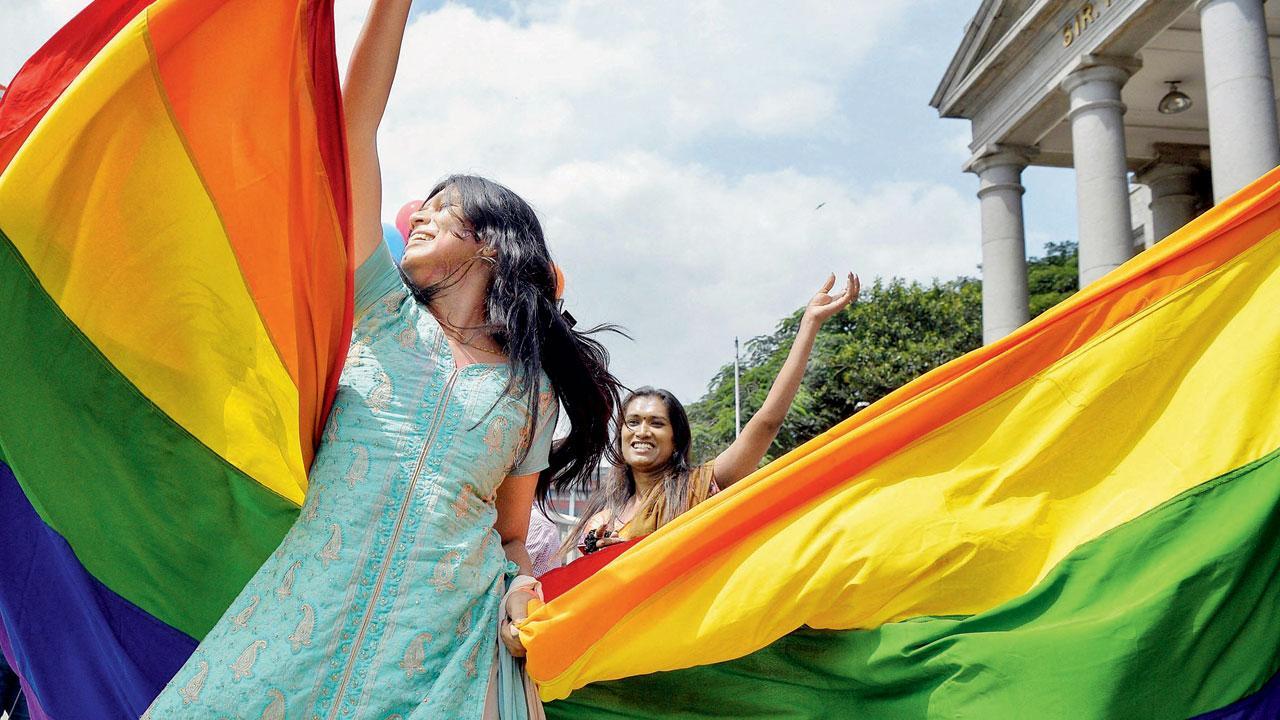Pawan Dhall, founding trustee of Varta Trust in Kolkata, said the partial striking down of Section 377 was just the beginning where consenting adults having same-sex relations get legal shield against prosecution

The LGBT community celebrates the Supreme Court decision to strike down colonial-era ban on gay sex on Sept 6, 2018. Pic/AFP
Four years ago on this day, the Supreme Court partially struck down Section 377 of the IPC, decriminalising same-sex relationship between consenting adults.
However, on the fourth anniversary of the verdict, queer activists in Kolkata, which hosted India’s as well as South Asia’s first Queer Pride walk way back on July 2, 1999, said the members of the Lesbian, Gay, Bisexual, Transgender and Queer (LGBTQ) community still face public humiliations and harassments. Pawan Dhall, founding trustee of Varta Trust in Kolkata, said the partial striking down of Section 377 was just the beginning where consenting adults having same-sex relations get legal shield against prosecution.
However, “the harassment and humiliations for the people from the community not just from the public in general, but also from the constituents of the administration still continue. The legal shield has to be carried forward with creation of mass awareness,” said Dhall, one of the principal initiators of South Asia’s first Queer Pride walk in Kolkata, then Calcutta.
Also read: The macro impact of microaggressions experienced by LGBTQIA+ individuals
Senior counsel of the Calcutta High Court Kaushik Gupta feels that although Article 14 of the Constitution ensures everyone equality, often the spirit of this Article is not followed in case of the LGBTQ community. “To my opinion, it is high time that a separate law under this Article is formulated that will ensure protection of the people of the community from social injustice, inequality and harassment,” Gupta said.
Psychiatrist Dr Tirthankar Guha Thakurta, a visiting faculty to the Department of Psychology of the University of Calcutta, said, “...the problem lies where a person from the community faces discrimination at the domestic level from their parents and other family members.”
Queer rights activist Tracy Shivangi Sardar said while the current generation is comfortable with the association with the LGBTQ community, the discrimination comes mainly from the older generation. “We need a thorough awareness campaign on this count,” she said.
2 July
Day South Asia’s and India’s first Queer Pride walk was held
This story has been sourced from a third party syndicated feed, agencies. Mid-day accepts no responsibility or liability for its dependability, trustworthiness, reliability and data of the text. Mid-day management/mid-day.com reserves the sole right to alter, delete or remove (without notice) the content in its absolute discretion for any reason whatsoever
 Subscribe today by clicking the link and stay updated with the latest news!" Click here!
Subscribe today by clicking the link and stay updated with the latest news!" Click here!











